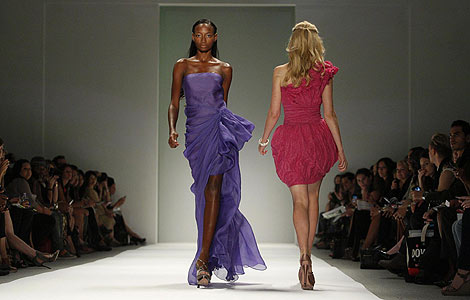Chairman Mao commemorated on 35th anniversary of death
Updated: 2011-09-09 22:04
(Xinhua)
|
|||||||||||
BEIJING - It's a rare, clear blue sky day in Beijing, and at Tian'anmen Square, the queue to visit Mao Zedong's Mausoleum extends longer than normal.
"It's the 35th anniversary of his (Chairman Mao) death," said Sun Xiuzhen, a 75-year-old woman from Qiqihar in northeast Heilongjiang province.
Sun said she reveres the late Chairman, and she and her daughter came to Beijing to pay him their respects.
"He was a great man who has influenced Chinese society for decades," her daughter, Liu, exclaimed. "Without him, there would be no new China."
Guo Xinzhong, in his 50s, came from central Hunan Province, where Chairman Mao was born.
"It has been my long-cherished wish to see him," he said.
Lu He, 26, a guard working at the mausoleum, said Friday's crowd is the biggest he's seen for a while.
People passed by the crystal casket in silence. Many presented bouquets to the chairman, who died in 1976 at the age of 83.
An American man from New York City wore a black T-shirt with the image of Mao and Chinese characters that read "Long Live Chairman Mao."
"He was a nice man -- a great man," he said, although he was unaware it was the anniversary of Mao's death.
Hailed as the "Red Sun," Mao Zedong, architect of the People's Republic of China, remains an influential figure among the country's 1.3 billion people.
Even in the remote plateau region of Tibet, many people hang his photos at home, always together with portraits of the Buddha.
"Our lives changed a lot, especially in recent years," said 45-year-old Tenzin Tsering from Gyanbe village of Konjo county, Qamdo. "Like the living Buddhas, we revere him."
At Mao's birthplace in Shaoshan, Hunan province, the number of tourists doubled on Friday. Some people set off firecrackers, some placed fruit in front of the bronze statue of the late chairman, some wept, while some bowed and presented bouquets.
Mao Youlian, 86, brought homemade wine. He filled a cup with the wine and began speaking.
"To the chairman, we elderly people have deep feelings," he said. "Now that life is getting better, we should thank him."
A Mr Luo from the prosperous Shenzhen city, a showcase of China's reform and opening-up policies in southern Guangdong Province, brought his 9-year-old son to the memorial in Shaoshan.
Pointing at the pictures and items exhibited, he told the boy about history.
"Today is a special day. I hope he can learn something here, which maybe helpful in shaping his life philosophy and values," he said.
In the online community, many people wrote articles to commemorate Mao.
"He came from the common folk, led the Communist Party of China (CPC) to victory, founded the nation, and stuck to Marxism-Leninism," wrote Chen Shiyu at wuyouzhixiang, or Utopia, a major online community that advocates Mao's thought.
"He made mistakes, like the Cultural Revolution, but what was his motive for the revolution? He was trying to have the Communist Party keep its nature as proletarian," he said.
This, as he noted, is far-sighted as seen today, when the country has to face the woes of income gap and corruption.
His view was shared by Xie Chuntao, author of "Why and How the CPC Works in China," and a professor with the Research Center of Party History, under the Party School of the CPC Central Committee.
"His mistake lies with the measure, not the values," he said. "Chairman Mao firmly believed that differences in people's income shouldn't be too big, and the cadres and ordinary people should keep close contact. These are well recognized by people even nowadays."
Xie said the chairman had a noble personality.
"Several people in his family lost their lives in the war, and the chairman took the lead to lower his own salary. His altruism should be learned by many leaders today."
Xie pointed out that Mao was also a poet and a calligrapher. "He was a versatile man with talent in many different aspects," he said.
The government of Hunan's Xiangtan city, which administers Shaoshan, has an ambitious idea: to invest 500 million yuan (about $77 million) to produce a 3D play about the chairman.
The city government plans to invite famous film director James Cameron to join the project.
- China's inflation eases to 6.2% in August
- Wen vows to beef up rural education
- US faces 'credible 9/11 threat'
- China to boost outbound investment
- Ministry: China to further facilitate investment
- State Council demands spill probe
- Little role of NATO in anti-terrorism
- Internet major source of rumors: poll
Hot Topics
President Hu Jintao sent festive greetings to teachers ahead of national Teachers' Day, which falls on September 10, during his visit to Beijing No. 80 High School on Friday.
Editor's Picks
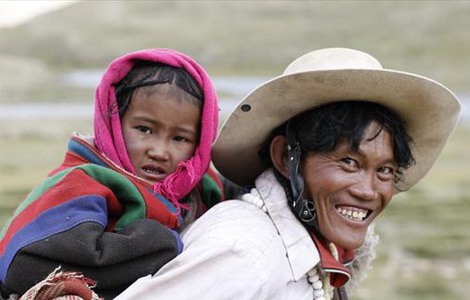
|
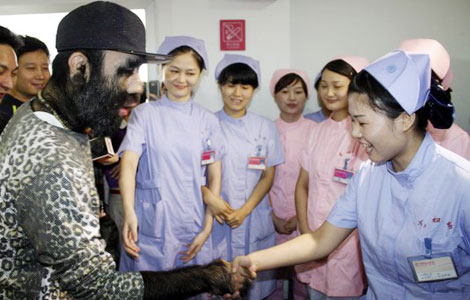
|

|
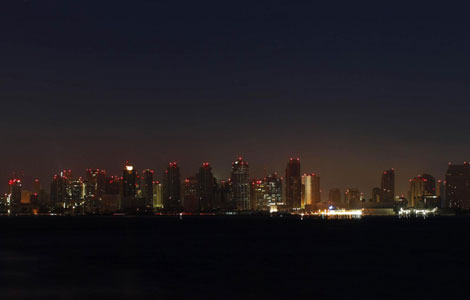
|
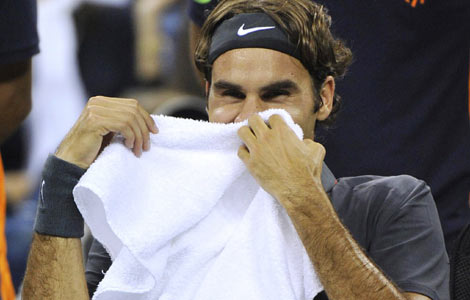
|
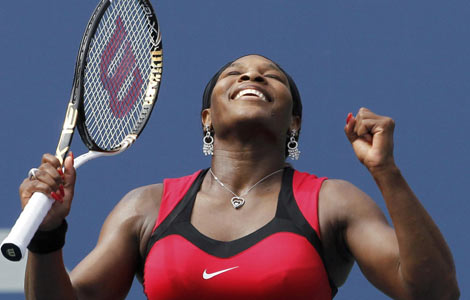
|


